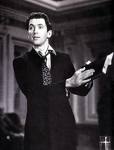American Legal History and the Hessian Effect
 It is curious thing that, even as undergraduate liberal arts programs continue to take a beating, law schools designed to train professionals now offer more humanistic (sometimes called perspective) courses than ever. What may be even more curious is that the presence of these courses in the curriculum is justified on instrumental grounds. Courses in jurisprudence, legal history, and comparative law (as well as others taking their cue from the social sciences) provide, it is argued, a context for the understanding (and later exercise) of practical wisdom. The Hessian effect — the sense that the law teacher is there simply to train practically-minded mercenaries, see Thomas Bergin, The Law Teacher: A Man Divided Against Himself, 54 Va. L. Rev. 637 (1968) — remains present in legal education, but the definition of the training of lawyers has broadened to encompass such courses as integral to one’s legal education.
It is curious thing that, even as undergraduate liberal arts programs continue to take a beating, law schools designed to train professionals now offer more humanistic (sometimes called perspective) courses than ever. What may be even more curious is that the presence of these courses in the curriculum is justified on instrumental grounds. Courses in jurisprudence, legal history, and comparative law (as well as others taking their cue from the social sciences) provide, it is argued, a context for the understanding (and later exercise) of practical wisdom. The Hessian effect — the sense that the law teacher is there simply to train practically-minded mercenaries, see Thomas Bergin, The Law Teacher: A Man Divided Against Himself, 54 Va. L. Rev. 637 (1968) — remains present in legal education, but the definition of the training of lawyers has broadened to encompass such courses as integral to one’s legal education.
Part of this transformation results from the greater employment of legal academics who hold joint degrees in law and other disciplines, many of whom had little experience in practice. Part was a reaction against dogged resistance to “big ideas” about law in mid-twentieth century legal education, and part, I think, is due to a hunger in students for something more from their education than technocratic training.

